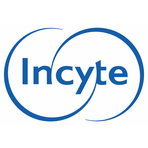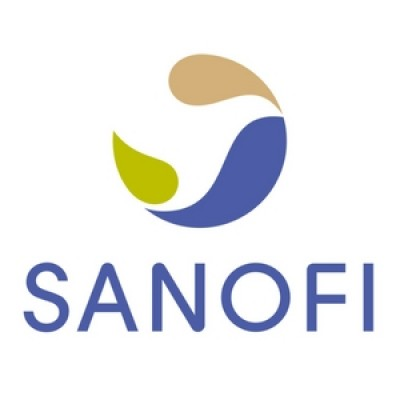Advancing Dermatological Research: The American Skin Association's 2024 Grants** **
July 26, 2024, 9:26 am
**
The American Skin Association (ASA) has taken a bold step forward in the fight against skin diseases. On July 22, 2024, the ASA announced its 2024 research grants, a lifeline for scientists dedicated to understanding and treating skin conditions like melanoma, psoriasis, and atopic dermatitis. With over $50 million in funding over the past thirty-seven years, ASA is a beacon of hope for the more than 100 million Americans grappling with skin disorders.
The grants awarded this year highlight the ASA's commitment to fostering innovation in dermatology. Three Investigative Scientist Awards were presented to leading researchers. Andrew Ji, MD, from the Icahn School of Medicine at Mount Sinai, received the ASA Sanofi Investigative Scientist Award for his work on atopic dermatitis. Christoph T. Ellebrecht, MD, from the University of Pennsylvania, earned the ASA Bristol Myers Squibb Investigative Scientist Award for his research on psoriasis. Nicholas Gulati, MD, PhD, also from Mount Sinai, was recognized with the ASA Sun Pharma Investigative Scientist Award.
In addition to these prestigious awards, the ASA announced four Research Scholar Awards. Kingsley Essien, PhD, from the University of Massachusetts Chan Medical School, received the ASA Calder Research Scholar Award for his work on vitiligo. Helen He, MD, and Patrick M. Brunner, MD, MSc, both from Mount Sinai, were awarded for their research in vitiligo and atopic dermatitis, respectively. Christine C. Yokoyama, MD, PhD, from Washington University in St. Louis, also received recognition for her work in psoriasis.
These grants are not just financial support; they represent a commitment to advancing the understanding of skin diseases. The ASA aims to enhance treatments and ultimately find cures. The skin, despite being the largest organ, often receives the least funding in medical research. This disparity makes the ASA's efforts even more critical.
The ASA's Medical Advisory Committee (MAC) plays a vital role in the grant process. Comprising leading scientists and physicians, the MAC ensures that the funding goes to projects with the highest potential for impact. This year’s awardees reflect a growing trend in dermatological research, where basic science is rapidly translating into clinical applications. The promise of new treatments for conditions like vitiligo and psoriasis is on the horizon, thanks to the ASA's funding.
The 2024 grants cover a wide range of projects. For instance, Andrew Ji's research will explore the interactions between fibroblasts and dendritic cells in atopic dermatitis. This could lead to breakthroughs in understanding how this common skin condition develops and how to treat it effectively. Similarly, Ellebrecht's work aims to identify therapeutic targets for T cells in psoriasis, potentially paving the way for more targeted therapies.
The ASA's funding also extends to medical students, nurturing the next generation of dermatologists. The 2024 Bristol Myers Squibb Medical Student Grant was awarded to Aaron Bao from Johns Hopkins School of Medicine. His project focuses on the transcriptional mechanisms underlying calcinosis cutis in dermatomyositis, a rare but serious condition.
The impact of these grants extends beyond individual projects. They foster a collaborative environment among researchers, encouraging the sharing of ideas and findings. This synergy is crucial in a field where understanding the complex biology of skin diseases can lead to significant advancements in treatment.
The ASA's mission is clear: to champion skin health and drive public awareness about skin diseases. With a unique collaboration of patients, families, advocates, physicians, and scientists, the ASA is a formidable force in the fight against skin disorders. The organization’s commitment to transparency and accountability is evident, as it has earned Candid's Seal of Platinum Transparency and a Four-Star Rating from Charity Navigator.
The need for research in dermatology is urgent. Skin diseases can have profound effects on quality of life, impacting not just physical health but also mental well-being. The ASA's grants are a vital investment in the future of dermatological research. They represent hope for millions affected by skin conditions, offering the possibility of new treatments and, ultimately, cures.
As the ASA continues to support innovative research, it also raises awareness about the importance of skin health. Skin diseases often go unnoticed, overshadowed by more prominent health issues. However, the ASA is determined to change that narrative. By funding groundbreaking research and promoting education, the ASA is paving the way for a future where skin diseases are better understood and more effectively treated.
In conclusion, the American Skin Association's 2024 research grants mark a significant milestone in dermatological research. With a focus on innovation and collaboration, the ASA is not just funding projects; it is fostering a movement. A movement that seeks to illuminate the shadows of skin diseases and bring hope to those affected. The journey toward understanding and curing skin disorders is long, but with the ASA leading the charge, the future looks promising.
The American Skin Association (ASA) has taken a bold step forward in the fight against skin diseases. On July 22, 2024, the ASA announced its 2024 research grants, a lifeline for scientists dedicated to understanding and treating skin conditions like melanoma, psoriasis, and atopic dermatitis. With over $50 million in funding over the past thirty-seven years, ASA is a beacon of hope for the more than 100 million Americans grappling with skin disorders.
The grants awarded this year highlight the ASA's commitment to fostering innovation in dermatology. Three Investigative Scientist Awards were presented to leading researchers. Andrew Ji, MD, from the Icahn School of Medicine at Mount Sinai, received the ASA Sanofi Investigative Scientist Award for his work on atopic dermatitis. Christoph T. Ellebrecht, MD, from the University of Pennsylvania, earned the ASA Bristol Myers Squibb Investigative Scientist Award for his research on psoriasis. Nicholas Gulati, MD, PhD, also from Mount Sinai, was recognized with the ASA Sun Pharma Investigative Scientist Award.
In addition to these prestigious awards, the ASA announced four Research Scholar Awards. Kingsley Essien, PhD, from the University of Massachusetts Chan Medical School, received the ASA Calder Research Scholar Award for his work on vitiligo. Helen He, MD, and Patrick M. Brunner, MD, MSc, both from Mount Sinai, were awarded for their research in vitiligo and atopic dermatitis, respectively. Christine C. Yokoyama, MD, PhD, from Washington University in St. Louis, also received recognition for her work in psoriasis.
These grants are not just financial support; they represent a commitment to advancing the understanding of skin diseases. The ASA aims to enhance treatments and ultimately find cures. The skin, despite being the largest organ, often receives the least funding in medical research. This disparity makes the ASA's efforts even more critical.
The ASA's Medical Advisory Committee (MAC) plays a vital role in the grant process. Comprising leading scientists and physicians, the MAC ensures that the funding goes to projects with the highest potential for impact. This year’s awardees reflect a growing trend in dermatological research, where basic science is rapidly translating into clinical applications. The promise of new treatments for conditions like vitiligo and psoriasis is on the horizon, thanks to the ASA's funding.
The 2024 grants cover a wide range of projects. For instance, Andrew Ji's research will explore the interactions between fibroblasts and dendritic cells in atopic dermatitis. This could lead to breakthroughs in understanding how this common skin condition develops and how to treat it effectively. Similarly, Ellebrecht's work aims to identify therapeutic targets for T cells in psoriasis, potentially paving the way for more targeted therapies.
The ASA's funding also extends to medical students, nurturing the next generation of dermatologists. The 2024 Bristol Myers Squibb Medical Student Grant was awarded to Aaron Bao from Johns Hopkins School of Medicine. His project focuses on the transcriptional mechanisms underlying calcinosis cutis in dermatomyositis, a rare but serious condition.
The impact of these grants extends beyond individual projects. They foster a collaborative environment among researchers, encouraging the sharing of ideas and findings. This synergy is crucial in a field where understanding the complex biology of skin diseases can lead to significant advancements in treatment.
The ASA's mission is clear: to champion skin health and drive public awareness about skin diseases. With a unique collaboration of patients, families, advocates, physicians, and scientists, the ASA is a formidable force in the fight against skin disorders. The organization’s commitment to transparency and accountability is evident, as it has earned Candid's Seal of Platinum Transparency and a Four-Star Rating from Charity Navigator.
The need for research in dermatology is urgent. Skin diseases can have profound effects on quality of life, impacting not just physical health but also mental well-being. The ASA's grants are a vital investment in the future of dermatological research. They represent hope for millions affected by skin conditions, offering the possibility of new treatments and, ultimately, cures.
As the ASA continues to support innovative research, it also raises awareness about the importance of skin health. Skin diseases often go unnoticed, overshadowed by more prominent health issues. However, the ASA is determined to change that narrative. By funding groundbreaking research and promoting education, the ASA is paving the way for a future where skin diseases are better understood and more effectively treated.
In conclusion, the American Skin Association's 2024 research grants mark a significant milestone in dermatological research. With a focus on innovation and collaboration, the ASA is not just funding projects; it is fostering a movement. A movement that seeks to illuminate the shadows of skin diseases and bring hope to those affected. The journey toward understanding and curing skin disorders is long, but with the ASA leading the charge, the future looks promising.

